Sun, July 11, 2010 | Intelligence and Terrorism Information Center
Fadlallah’s legacy sparks debate between reformists and conservatives following the top Lebanese Shi’ite cleric’s death
The leading Shi’ite cleric Ayatollah Muhammad Hussein Fadlallah died at 74 in Lebanon last week. He was considered the Hezbollah spiritual leader in Lebanon. On the backdrop of the ongoing political crisis in Iran, Fadlallah’s death also became a matter of political debate between the conservative camp and the reformist opposition. While conservative media stressed Fadlallah’s support for the principles of the Islamic revolution, Iran, and Supreme Leader Ayatollah Ali Khamenei, those media affiliated with the reformist camp emphasized Fadlallah’s reservations about the concept of “rule of the religious jurisprudent”, which prevails in Iran, and about Khamenei’s leadership. The reformist-affiliated media went as far as to claim that he supported Iran’s reformist movement.
This week, the conservative news agency Fars has aired excerpts from an interview granted by Fadlallah to the agency at some point (the date of the interview was not specified), in which the senior Shi’ite cleric expressed his unequivocal support for Iran and the Supreme Leader. In the interview, Fadlallah praised the Islamic revolution in Iran, saying that it had a major impact on regional and global developments.
The news agency emphasized Fadlallah’s praise for Khamenei during the interview. The Lebanese cleric defined Khamenei as an intellectual with a great deal of experience in politics and culture, who had proved himself more than capable of successfully dealing with the crises facing Iran in light of the hostile policy of Western powers, mainly the US. He also complimented the Supreme Leader’s policy towards the US and Israel and his support for the Islamic resistance movements in Palestine, Lebanon, and Iraq (Fars, July 6).
Tabnak, a website affiliated with the pragmatic conservative camp, claimed that, over the years, Fadlallah had repeatedly voiced support for Iran and the Supreme Leader. The website criticized attempts made by some media to portray Fadlallah as being opposed to the Supreme Leader and to the concept of “rule of the religious jurisprudent”, claiming that it was a misrepresentation of Fadlallah’s image by anti-Iranian media. The website claimed that, during a ceremony held last year in Lebanon, the top cleric had shared with an Iranian delegation his views on Iran and the Supreme Leader, defined Iran as the hub of Islamic thought and culture, and praised Khamenei for being a source of authority and setting an example for all Muslim clerics by the way he dealt with social issues (Tabnak, July 6).
The conservative daily Ebtekar provided an extensive coverage of Fadlallah’s life and death and the reactions to his passing away. The daily claimed that Fadlallah considered supporting Iran to be a religious duty until the day he died, and that he avoided expressing his opinions on Iran’s internal political affairs. The daily admitted, however, that his relations with Iran had grown strained in recent years, even claiming that several top Shi’ite clerics had questioned his religious authority due to his controversial rulings on such issues as women and Shi’ite mourning rituals (Ebtekar, July 6)
On the other hand, Jaras, a website affiliated with the supporters of opposition leader Mir-Hossein Mousavi, released excerpts from a discussion held with Fadlallah in 2008, supposedly implying that he supported Iran’s reformist movement.
According to the website, in the off-the-record discussion Fadlallah voiced his support for top reformist cleric Ayatollah Hossein Ali Montazeri, and even pointed out that he had expressed his protest to former president Mohammad Khatami about the way the senior cleric was treated by the Iranian regime. During the conversation, Fadlallah also said he had reservations over the concept of “rule of the religious jurisprudent” (Velayat-e Faqih), saying that the cleric must monitor the way laws are applied in accordance with Islam, meaning that he should not be the ruler himself. When asked about his views on Khamenei and his religious qualifications, Fadlallah said that he did not recognize Khamenei as a “source of emulation” for Shi’ite believers, and that he did not believe that the Supreme Leader was sufficiently familiar with the special conditions prevailing in Lebanon, making it impossible to establish an Islamic government in that country (Jaras, July 6).
In a letter of condolence released this week by the Supreme Leader on the occasion of Fadlallah’s death, Ali Khamenei said that Fadlallah was a staunch supporter of the Islamic revolution in Iran, and that he had proven his loyalty to the Islamic republic by words and actions (various news agencies, July 6).



 RSS
RSS


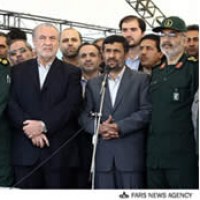
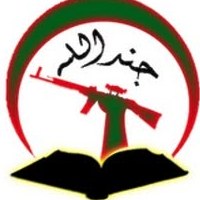
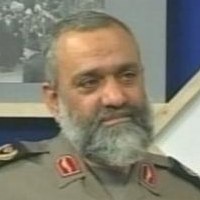
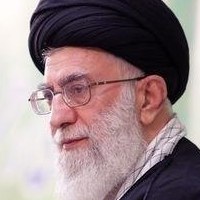
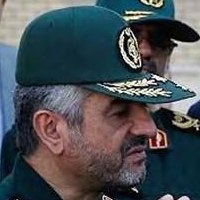




Fadlallah’s Legacy Sparks Debate Between Iran’s Reformists and Conservatives #iran #fadlallah #shiism http://bit.ly/c2DXdl
RT @CrethiPlethi: Fadlallah’s Legacy Sparks Debate Between Iran’s Reformists and Conservatives #iran #fadlallah #shiism http://bit.ly/c2DXdl